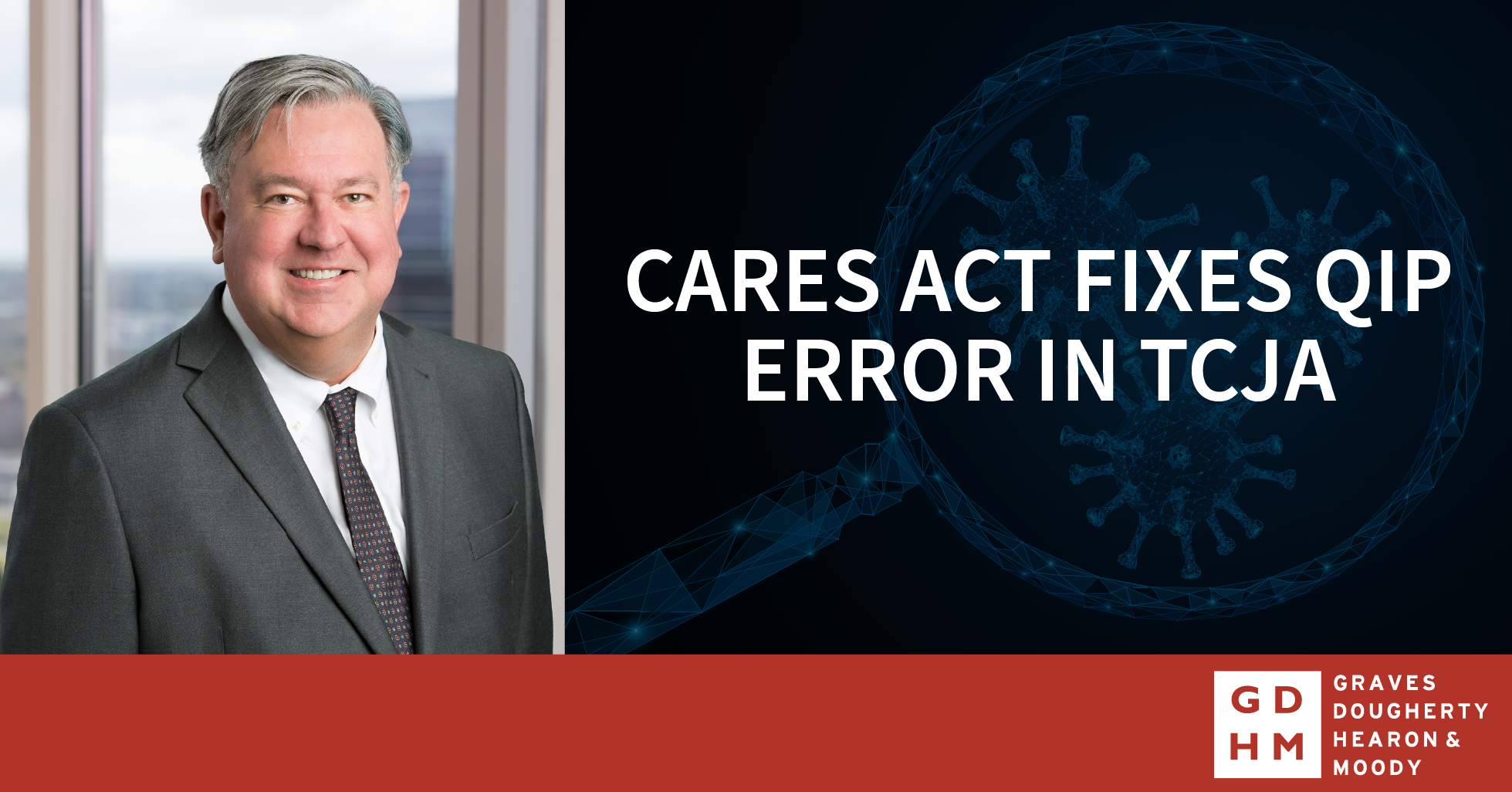
The 2020 Coronavirus Aid, Relief, and Economic Security Act (“CARES Act”) signed into law on Mar. 27, 2020 includes a beneficial change in the tax rules for many improvements to interior parts of nonresidential buildings (“qualified improvement property” or “QIP”).
Due to an inadvertent drafting error by Congress in the 2017 Tax Cuts and Jobs Act (“TCJA”), any QIP placed in service after Dec. 31, 2017 was not considered to be eligible for 100% bonus depreciation. Therefore, the cost of QIP had to be deducted over a 39-year period instead of entirely in the year the QIP was placed in service. However, the CARES Act corrects the TCJA drafting error for QIP. Thus, most businesses are now allowed to claim 100% bonus depreciation for QIP, as long as other requirements are met. Further, the correction is retroactive and applies to any QIP placed in service after Dec. 31, 2017. Unfortunately, improvements related to the enlargement of a building, any elevator or escalator, or the internal structural framework continue to be outside of the definition of QIP.
Although the current economic conditions will likely restrict most businesses from undertaking new capital expenditures (even in circumstances in which the substitution of 100% bonus depreciation for a 39-year depreciation period significantly lowers the true cost of QIP), the retroactive effect of the CARES Act presents favorable opportunities for qualifying expenditures already made and, of course, when a business is ready to undertake qualifying improvements the 100% bonus depreciation will be available.
Frank L. Leffingwell is a tax attorney in the firm’s Tax Planning & Controversy, Estate Planning, Probate & Trusts, and Real Estate sections.